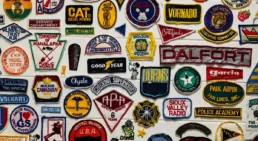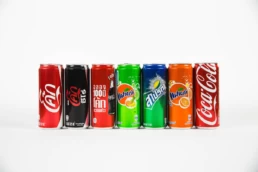Is the meaning of your brand name important?
When we think of “Brand” we have many of our own favourite brands that we associate with daily that pop up in our minds. Is it because of the brand name or the meaning the brand gives to the name?
Let’s simplify that. Apple doesn’t sell apples. Cannon doesn’t shoot cannon balls. What does Pepsi or Rolex mean? The point being, the meaning of the brand name is defined by you.
In a world full of competition and growing so fast with technology and new inventions, it is imperative to stay at the top of it all. This means your brand has to constantly adapt to its surroundings, so how can you ensure people remember you 10 years later just like they would today?
The name of your brand actually holds very smallvalue unless you build it up by educating the public about what it stands for. This includes its meaning, your products or services and most importantly, the connections you make and maintain with your customers over years.

So what gives meaning to the name you choose for your brand?
Let's break it down.
The Story
Every brand comes from a story. As the first event or situation that prompted you to think about solving a specific problem for others around you through your new product or service, the brand name takes on meaning. Successful brands are built on stories. They enable customers to connect with their brands, understand their values, and what makes them unique. Sharing this story with customers is the heart of any brand.
The Appearance
How you present yourself is the second aspect of your brand name. A brand must dress a certain way based on the types of people it plans to interact with just like you dress casually for brunch on Sundays or in a gown/suit to fit the mood at a cocktail party. The use of fonts, graphics, colors, and other elements to convey your story to the audience. By creating a strong visual identity, people can recognize and remember your brand name. The visuals associated with your brand should be consistent to create a unified presence and a positive impression on your target audience.
Your Message
In many ways, the brand name is a visual or short name for your brand message. For example, when you think of Nike, you remember their message "Just do it" or when you think of Coca-Cola you immediately think of "Opening Happiness". A brand message isn't necissarily the tagline or slogan of the brand but what it implies. So if you are a brand with an aim to remove all plastic waste from the world's oceans you may have a tagline that relates to the mission. For example, "Our Ocean, Our Home." Through various campaigns and interactions people will form a connection with the brand name when they can relate to the emotions your brand carries. When customers are emotionally connected to your brand, they are more likely to become loyal and enthusiastic supporters. This connection is also an effective way to boost your brand's visibility and reputation, as customers are more likely to recommend your brand to others. Ultimately, this gives more meaning and value to your brand name.

So, what makes an effective brand name?
While there are many aspects to giving a brand name its meaning, making sure people remember the name is important. You can find the right name by asking yourself these simple questions.
-
Is it easy to remember? (Short and sweet is always nice but not necessary)
-
Is it easy to pronounce? (Words with max 1 – 2 syllables and start and end with vowels are most likely to be remembered faster)
-
Does it leave space for business growth and expansion opportunities moving into the future? (Don’t restrict yourself to a specific word – you may be working with teeth today but who is to say the brand won’t work with gums in the future?)
-
Does it feel like it sounds? (If you’re a brand that cares about helping people get discovered for their talents, you probably don’t want to be called “Caricaturists”)
-
Is it relatable to the target audience? (There’s no rule about brand names being descriptive but if you run an animal shelter, you probably don’t want people to call you “The Butcher” and rather be called “Paw Care”.)
